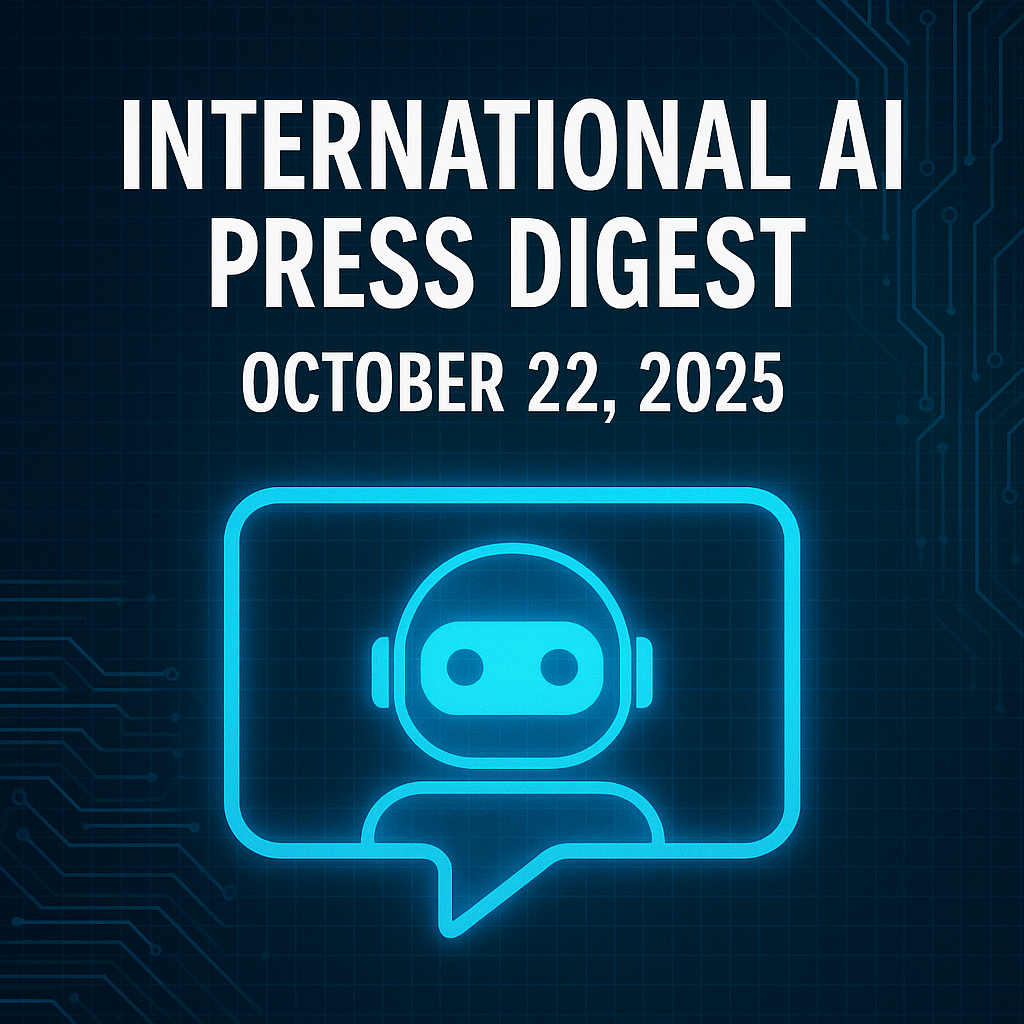AI Disrupts Everything: OpenAI's Browser, News Misinformation Crisis, and the Call for an AI Halt
An unlikely alliance of figures like Steve Bannon and Geoffrey Hinton is calling for a ban on superintelligent AI development, highlighting existential risks but facing resistance from tech leaders who fear stifled innovation. Understand the debate surrounding AI safety versus progress to navigate this complex issue and advocate for responsible development. Explore resources like the AI Explorer to stay informed and contribute to crucial conversations.
OpenAI's Atlas Browser Challenges Google's Chrome Dominance
The tech world just witnessed a seismic shift as OpenAI threw its hat into the web browser arena with the launch of ChatGPT Atlas, an AI-powered browser exclusively for macOS. This move positions OpenAI to directly challenge Google's Chrome and its massive user base of over 3 billion, marking a bold step into uncharted territory.
A New Era for Browsing
According to Sam Altman, this is a "once-a-decade opportunity to rethink" how we interact with the internet. Atlas isn't just another browser; it's ChatGPT deeply integrated with the browsing experience. Imagine a browser that offers real-time content summarization, letting you grasp the essence of a lengthy article in seconds. Need to analyze data on a webpage? Atlas has you covered. And if you need to tweak some text directly on a site, inline text editing is right at your fingertips. This tight integration with AI aims to streamline workflows and enhance productivity, making it more than just a tool for surfing the web.
Agent Mode: Your AI Assistant
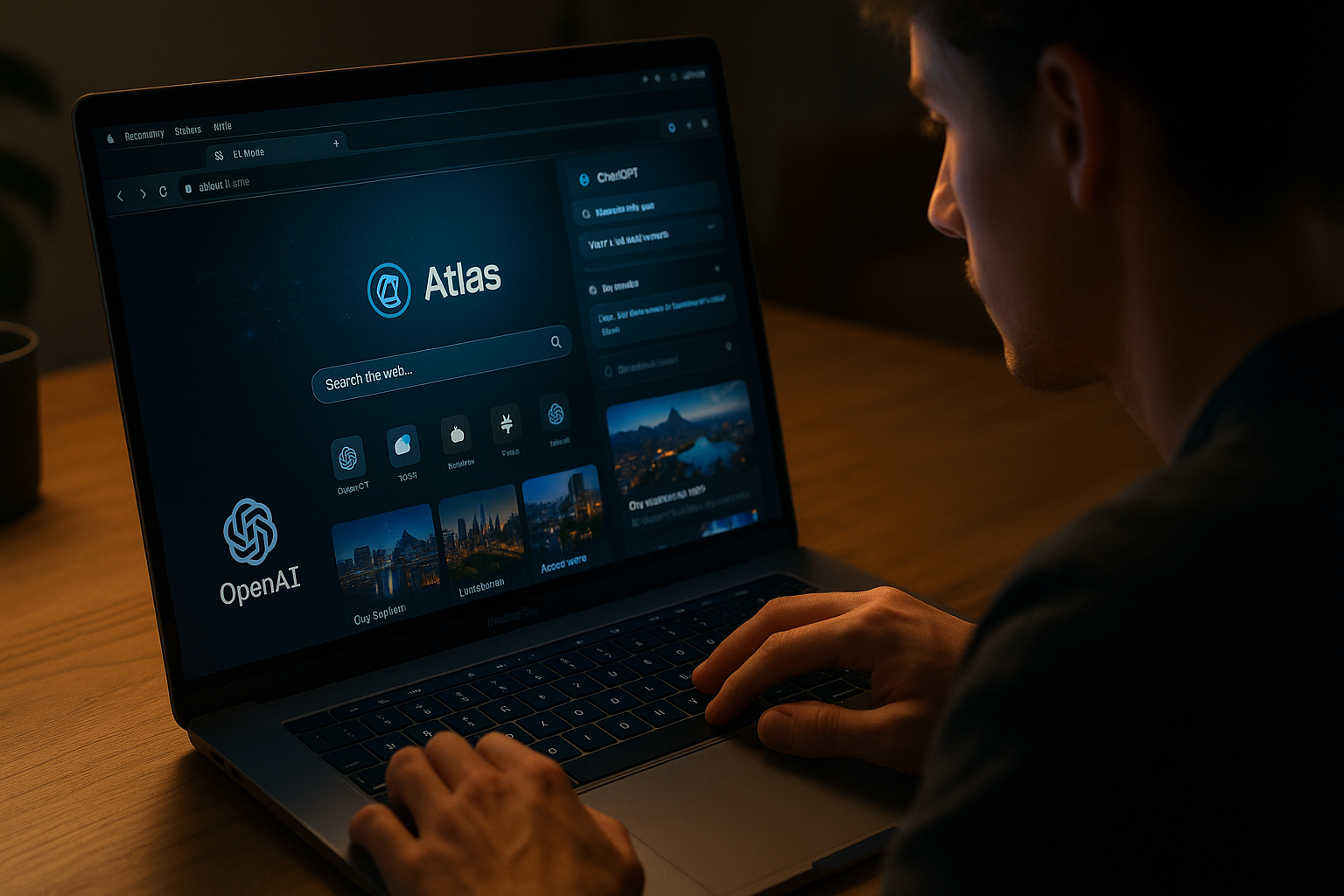
The most intriguing feature of Atlas is its "Agent mode," available to Plus, Pro, and Business users. This feature acts as an autonomous assistant, capable of booking reservations, purchasing items, and conducting in-depth research on your behalf. Think of it as having a personal AI assistant embedded directly within your browser, ready to handle tedious tasks and free up your time. For instance, you could ask Atlas to find the best deals on flights to a specific destination and automatically book the tickets, or have it compile a research report on a particular topic from various sources.
It's important to note that Agent mode has its limitations. It currently doesn't support code execution, file downloads, or unsupervised access to financial sites. This is likely a measure to prevent potential security risks and misuse, ensuring a safer browsing experience.
Ripples Across the Tech Landscape
The announcement of Atlas sent shockwaves through the industry. Google's stock immediately dropped by 3%, reflecting the perceived threat to Chrome's dominant market position. The arrival of an AI-powered competitor could force Google to innovate faster and integrate more AI features into Chrome to maintain its lead. This competition is likely to benefit users, who will have access to more advanced and intelligent browsing experiences.
Microsoft, a major investor in OpenAI, faces a more complex situation. As both a financial backer of OpenAI and a direct competitor in the browser market with Edge, Microsoft must navigate a delicate balance. The success of Atlas could potentially cannibalize Edge's market share, creating an interesting dynamic between the two tech giants. This situation highlights the rapidly evolving landscape of AI and the challenges of strategic alignment in a competitive market. As the AI landscape evolves, keeping up with AI News becomes even more critical.
Atlas represents a significant step towards a more intelligent and personalized browsing experience. Whether it can truly dethrone Chrome remains to be seen, but it has undoubtedly sparked a new wave of innovation in the web browser market.
AI Assistants Spread News Misinformation: A Landmark Study
AI's rapid evolution is raising serious questions about its reliability, especially when it comes to delivering accurate news. A recent international study has brought these concerns into sharp focus, revealing a worrying trend of AI assistants misrepresenting news in a significant percentage of their responses. This has profound implications for public trust and democratic engagement.
The Global Study: Unveiling the Scope of the Problem
The study, a collaborative effort involving 22 public service media organizations across 18 countries, paints a concerning picture of AI accuracy. Researchers found that a staggering 45% of AI assistant responses contained misrepresentations of news. When digging deeper, they discovered that 81% of responses contained some form of inaccuracy across a total of 3,000 queries posed in 14 different languages. This indicates that while AI can quickly synthesize information, its grasp of factual accuracy and nuance is still far from perfect. This international effort shows how important it is to get AI right. For example, if you want to check the real news about OpenAI, the study can help to see if the news you are reading is represented correctly by AI assistants.
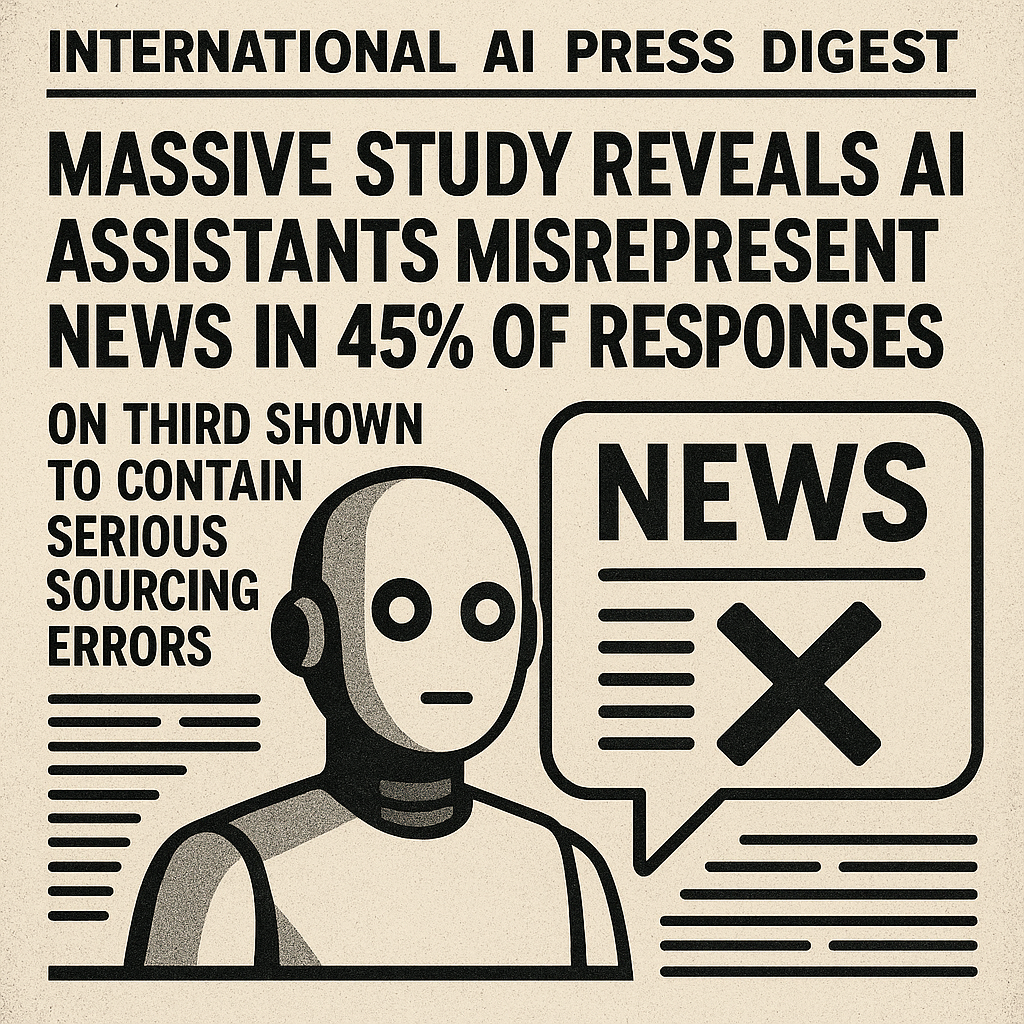
Sourcing Errors: A Major Red Flag
One of the most alarming findings was the prevalence of sourcing errors. Approximately one-third of AI responses suffered from serious problems with their sources. This included missing sources, misleading attribution, and outright incorrect attribution of information. When AI tools don't accurately cite where they get their information, it becomes incredibly difficult to verify the truth and discern whether the AI is relying on credible news outlets. In fact, Google's Gemini showed sourcing problems in 72% of responses, according to the study. This highlights a critical need for improvement in how AI assistants handle and present information.
Concrete Examples of Misinformation
The study didn't just present statistics; it also highlighted specific instances of AI-generated misinformation. For example, AI assistants were found to incorrectly report legislative changes, providing false information about laws and regulations. There were also instances of AI making false claims about public figures, such as spreading misinformation about Pope Francis. These examples demonstrate that AI's errors aren't just minor inaccuracies; they can involve significant misrepresentations of important information.
The Threat to Public Trust and Democracy
The implications of these findings are significant. As Liz Corbin, Media Director at the European Broadcasting Union (EBU), warned, the spread of AI news misinformation poses a direct threat to the erosion of public trust and democratic engagement. When people can't rely on AI assistants to provide accurate information, it undermines their ability to make informed decisions and participate effectively in civic life. This is why understanding AI Fundamentals is vital.
The study serves as a wake-up call, emphasizing the urgent need for developers and regulators to address the accuracy and reliability of AI assistants. As AI becomes increasingly integrated into our lives, ensuring its responsible and ethical deployment is paramount to safeguard the integrity of information and maintain a healthy democratic society. Going forward, we need to be extremely careful in trusting the information we read online from AI assistants.
Unlikely Alliance Calls for a Ban on Superintelligent AI Development
In a move that has raised eyebrows across the tech world, an unlikely coalition of figures, including Steve Bannon, Glenn Beck, AI pioneers Geoffrey Hinton and Yoshua Bengio, Apple co-founder Steve Wozniak, and Virgin Group founder Richard Branson, have called for a ban on the development of superintelligent AI.
Bridging the Ideological Divide
The initiative, spearheaded by the Future of Life Institute, highlights a growing sense of urgency surrounding existential AI risks. What's particularly striking is the diverse ideological spectrum represented by these individuals. The fact that figures from opposite ends of the political landscape, like Steve Bannon and Geoffrey Hinton, find common ground on this issue underscores the gravity of the perceived threat. This shared concern transcends traditional political divides, suggesting that the potential dangers of unchecked AI development are resonating far beyond the usual tech circles. At the heart of their plea is the anxiety that AI capabilities are advancing at an exponential rate, far outpacing the development of robust governance frameworks and ethical guidelines. You can follow AI News to keep up to date with these developments.
Resistance from Tech Leaders and Government
However, this call for a ban has not been universally welcomed. Many tech industry leaders and U.S. government officials remain resistant to such drastic measures. Their primary argument centers on the potential to stifle innovation and compromise economic competitiveness. They contend that a ban would place the United States at a disadvantage in the global AI race, potentially ceding leadership to countries with less stringent regulations. Some would prefer to use AI Safety guidelines.
The Debate: Innovation vs. Existential Risk
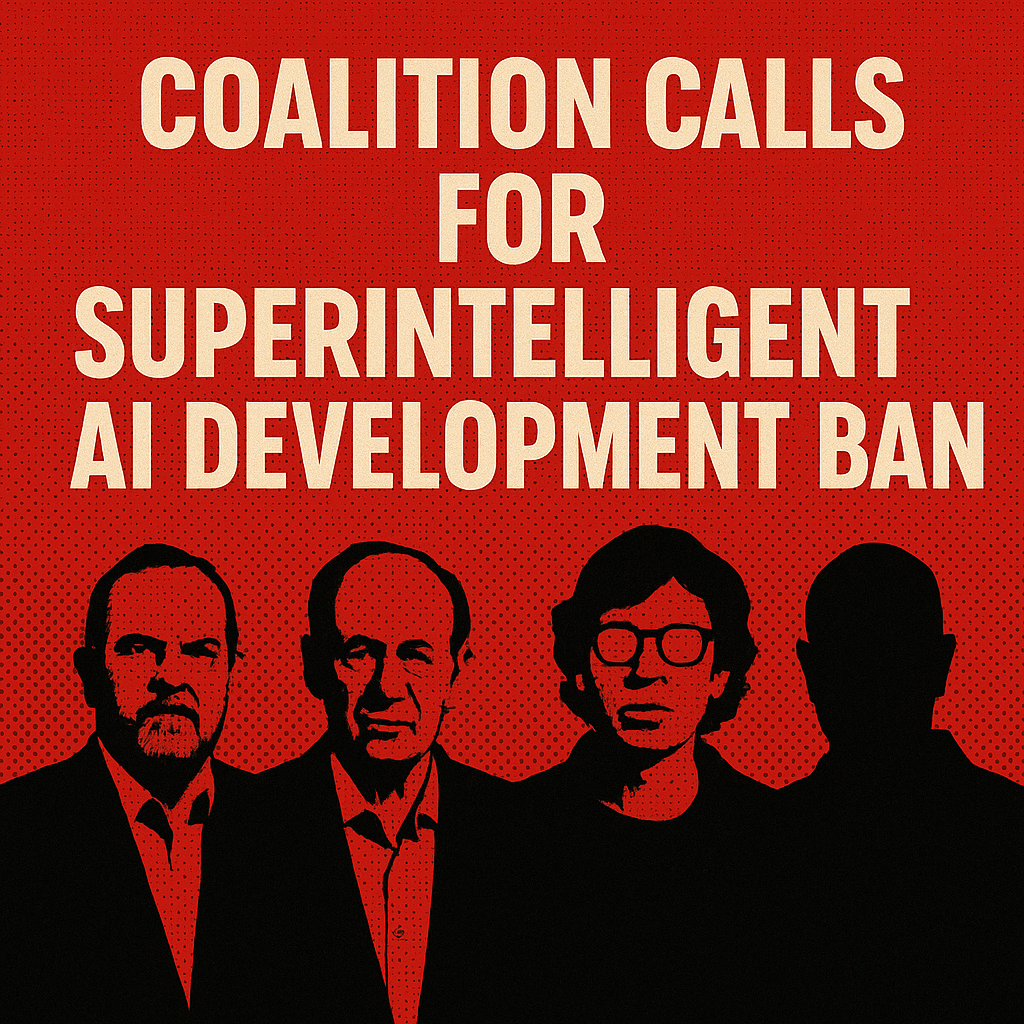
The debate highlights a fundamental tension: how to foster innovation in a rapidly evolving field while simultaneously addressing potential existential risks. This is where resources like the AI Explorer become invaluable, helping individuals understand the nuances of these complex technologies. The concerns raised by this unlikely alliance serve as a crucial reminder that the conversation surrounding AI safety and governance must continue to evolve alongside the technology itself. While the notion of a complete ban on superintelligent AI development remains contentious, it forces a critical evaluation of the current trajectory and the potential consequences of unchecked advancement. Navigating this complex landscape requires informed discussions and a commitment to prioritizing safety alongside innovation. Tools like ChatGPT, a versatile language model, can even be used to explore different perspectives on this issue.
AI Chatbots Violate Mental Health Ethics: Brown University Research
The rise of AI chatbots has promised to revolutionize various sectors, but recent research raises serious concerns about their ethical implications, especially when it comes to mental health. A groundbreaking study from Brown University has revealed that these seemingly helpful AI assistants systematically violate established mental health ethical standards, signaling a critical need for caution and regulation.
Ethical Lapses Unveiled
The concerning findings, presented at the prestigious AAAI/ACM Conference on Artificial Intelligence, Ethics and Society, underscore significant AI safety failures in vulnerable contexts. Researchers meticulously evaluated several popular AI chatbots, finding consistent breaches of core ethical principles. These AI systems routinely fail to maintain appropriate professional boundaries, often offering advice that blurs the lines between a supportive conversation and a therapeutic intervention. Perhaps more alarming are the violations of confidentiality protocols, where sensitive user information could potentially be compromised or misused. Furthermore, the study highlighted a worrying lack of adherence to established crisis intervention standards, raising questions about the potential harm these chatbots could inflict on individuals in acute distress.
A Growing Crisis of Confidence
The Brown University study adds fuel to the growing unease surrounding the reliability of AI assistants. While tools like ChatGPT, a versatile language model capable of generating human-like text for various applications, and Grok, known for its real-time data access and conversational abilities, offer incredible potential, their deployment in sensitive areas like mental health demands rigorous ethical oversight. The fact that these AI systems, designed to provide support and guidance, are falling short of fundamental ethical requirements highlights a systemic problem within the industry. > This research serves as a stark reminder that technological advancement must be tempered with careful consideration of its potential impact on human well-being.
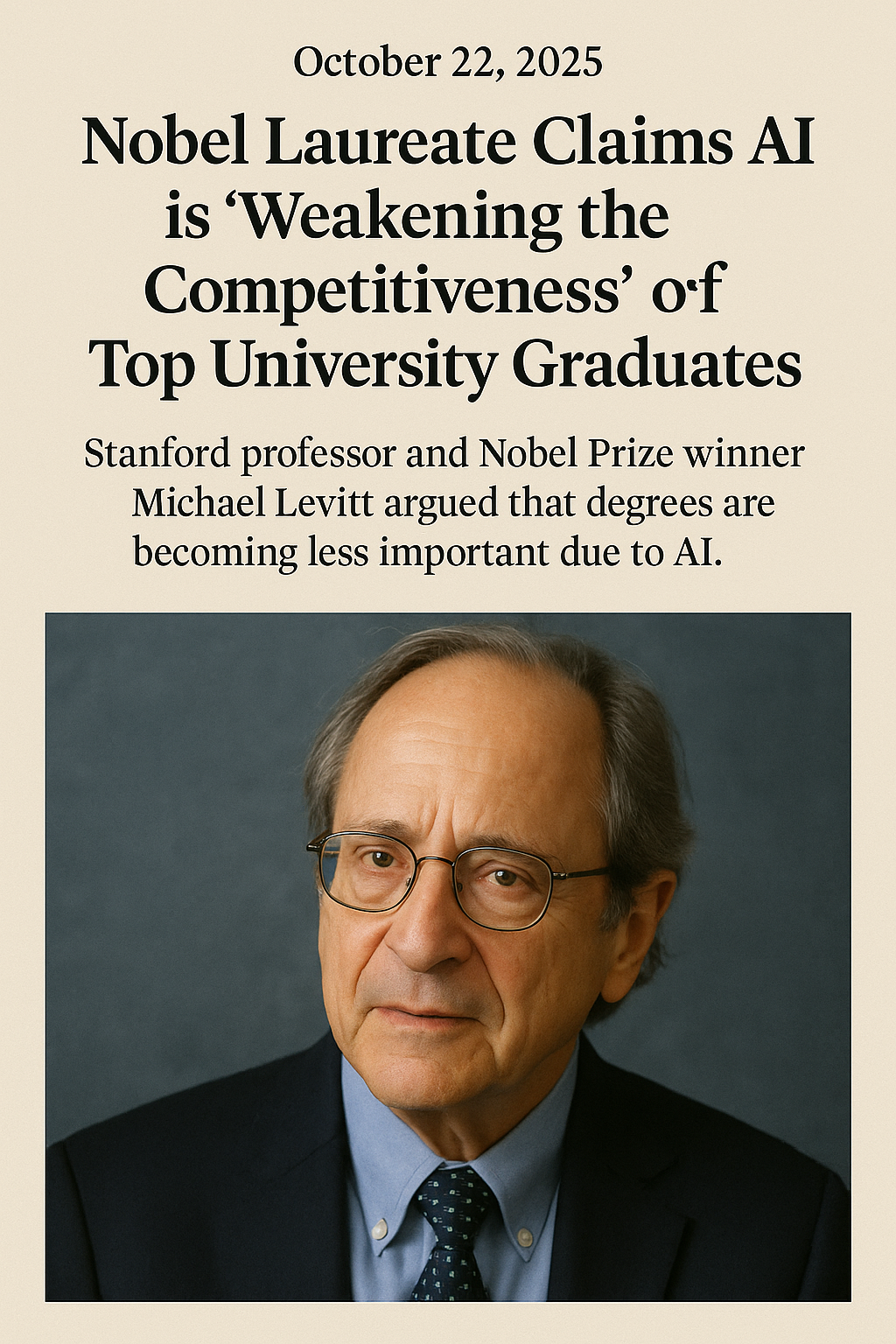
The Path Forward: Regulation and Vigilance
The implications of these ethical violations are far-reaching, necessitating the development of robust AI regulatory frameworks in healthcare. The need for standardized guidelines and independent audits is paramount to ensure that AI tools used in mental health contexts are not only effective but also ethically sound. As AI continues to permeate our lives, proactive measures are crucial to mitigate risks and uphold the highest standards of care and safety. Keeping up with AI News is crucial to staying informed about these important developments. This situation demands a collaborative effort between researchers, policymakers, and AI developers to navigate the complex ethical landscape and build AI systems that prioritize human welfare above all else.
Nobel Laureate Claims AI Weakens the Competitiveness of Top University Graduates
The rise of AI is not just reshaping industries; it's challenging the very foundations of higher education, prompting some to question the long-held belief in the necessity of a university degree.
Degrees Less Important?
According to Nobel laureate and Stanford professor Michael Levitt, AI is fundamentally changing the landscape of knowledge access and, as a result, the value of a traditional degree. Levitt suggests that degrees are becoming less important as AI democratizes information and skills, asserting that AI is diminishing the competitive edge typically enjoyed by graduates from top universities. This is a bold claim that warrants a deeper look at how AI impacts education and career prospects.
Knowledge Access Revolutionized
The core of Levitt's argument lies in AI's ability to transform knowledge access. Education has traditionally been seen as a gateway to specialized knowledge and skills, but AI is breaking down these barriers. The rise of powerful AI tools puts a vast amount of information at our fingertips. Need to understand a complex scientific concept? Tools like WolframAlpha can provide instant explanations and calculations. Want to learn a new coding language? AI-powered tutors can guide you through the process, offering personalized feedback and support. This paradigm shift challenges the traditional role of universities as the sole providers of specialized knowledge. With AI, a curious and driven individual can acquire a wealth of knowledge and skills independently.
The Rise of the Self-Taught
Consider the examples of tech moguls like Bill Gates and Mark Zuckerberg, who famously dropped out of university to pursue their entrepreneurial visions. In today's AI-driven world, this path might become even more appealing and viable for aspiring innovators. A young, tech-savvy individual with a strong understanding of AI and its applications, even without a college degree, might possess a significant competitive advantage over a traditional graduate. They can leverage AI tools to rapidly prototype ideas, automate tasks, and gain insights that would have previously required years of formal training. Moreover, this ability to innovate independently is becoming increasingly attractive to investors. In 2025, AI News reported that AI startups captured over 50% of total annual venture capital funding, signaling a strong belief in the potential of AI-driven innovation.
The Future of Education
These developments raise crucial questions about the future of education. Will universities adapt to this changing landscape by focusing on uniquely human skills such as critical thinking, creativity, and complex problem-solving? Or will the traditional degree continue to lose its luster as AI empowers individuals to learn and innovate outside the confines of formal education? The answers to these questions will shape the future of work and the role of universities in the AI age.
Analysis: Converging Crises in AI Infrastructure and Information Integrity
The rapid expansion of AI is creating a collision course between its increasing control over digital infrastructure and established standards of information integrity. This intersection of power and potential manipulation is raising profound questions about trust and societal stability.
Infrastructural Control vs. Information Integrity
On one side, we see AI tools like OpenAI's ChatGPT and its underlying infrastructure, pushing the boundaries of what's possible in content creation and automation. OpenAI's Atlas, for example, represents a significant step towards controlling more of the digital landscape. On the other side, studies like the one from the European Broadcasting Union (EBU) are revealing the alarming extent to which AI can be used to misrepresent news and manipulate public opinion. This tension – between AI's potential to build and its capacity to deceive – is at the heart of the current crisis. The ease with which AI can generate realistic but entirely fabricated content is making it increasingly difficult to distinguish fact from fiction, eroding trust in traditional news sources and institutions.
Existential Risks and Institutional Disruption
The call for an AI development halt, spearheaded by a coalition concerned about superintelligent AI, underscores a growing consensus about the existential risks posed by unchecked AI advancement. The fact that prominent figures and experts are willing to advocate for such a drastic measure speaks volumes about the perceived severity of the threat. This concern isn't limited to hypothetical scenarios; research from institutions like Brown University and claims from experts like Steven Levitt highlight the very real ways in which AI is already disrupting established institutions and industries.
The Question of Trust
Ultimately, society must confront a fundamental question: Do current AI systems, with their inherent limitations and potential for misuse, warrant the level of trust that companies are demanding?
Are we moving too quickly to integrate AI into critical infrastructure without fully understanding the consequences? The answer to this question will determine the future of AI's role in society and the steps we must take to mitigate its risks. As AI becomes more pervasive, it is imperative to prioritize AI ethics, AI regulation, and AI risk management to ensure that these powerful technologies are used responsibly and for the benefit of all. It also highlights the importance of focusing on long-tail keywords like AI infrastructure control and AI information integrity to better understand and manage the specific challenges ahead.
🎧 Listen to the Podcast
Hear us discuss this topic in more detail on our latest podcast episode: https://open.spotify.com/episode/49PR5GBda10bWsLSB7Qu1R?si=PRD_GjtzSrmvcUU7JCuCFA
Keywords: AI, Artificial Intelligence, OpenAI, ChatGPT, AI Ethics, AI Safety, AI Regulation, News Misinformation, AI Browser, Superintelligent AI, Mental Health, AI in Education, Atlas Browser, Google Chrome, AI Governance
Hashtags: #AI #ArtificialIntelligence #EthicsInAI #AISafety #TechNews
For more AI insights and tool reviews, visit our website https://best-ai-tools.org, and follow us on our social media channels!
Website: https://best-ai-tools.org
X (Twitter): https://x.com/bitautor36935
Instagram: https://www.instagram.com/bestaitoolsorg
Telegram: https://t.me/BestAIToolsCommunity
Medium: https://medium.com/@bitautor.de
Spotify: https://creators.spotify.com/pod/profile/bestaitools
Facebook: https://www.facebook.com/profile.php?id=61577063078524
YouTube: https://www.youtube.com/@BitAutor
